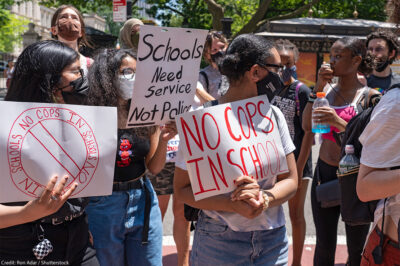Congress Enacts National Standard for Treatment of Youth in Criminal Courts
WASHINGTON — Congress passed and reauthorized today the Juvenile Justice Delinquency Prevention Act, a bill that ensures federal standards in the treatment of youth in criminal courts across the country. The legislation now needs President Trump’s signature.
Jennifer Bellamy, American Civil Liberties Union senior legislative counsel, had the following response:
“Today Congress has reaffirmed its commitment to the youth entangled in our country’s complex criminal justice system by passing a bill that will address the systematic practices that disproportionately penalize and incarcerate youth of color.
“The bill will help ensure the safety of the over 50,000 kids currently living in juvenile detention facilities. It will help address at-risk and delinquent behaviors and will help teens become productive members of society through community programs. President Trump should immediately sign this bill.
“But while this reauthorization of the JJDPA is an extremely important step, it is also an incomplete step. There is still work to be done to prevent youth from being detained for behaviors that would not be a crime if committed by an adult. We have momentum now to impose greater change and we should not lose it.”
Stay Informed
Every month, you'll receive regular roundups of the most important civil rights and civil liberties developments. Remember: a well-informed citizenry is the best defense against tyranny.




